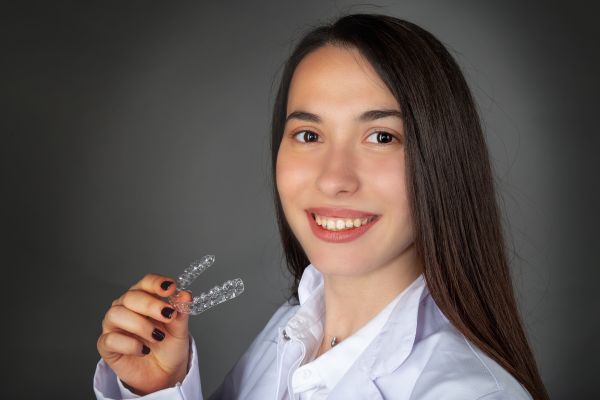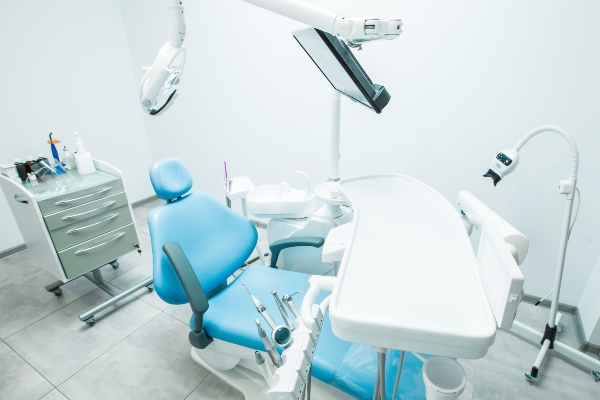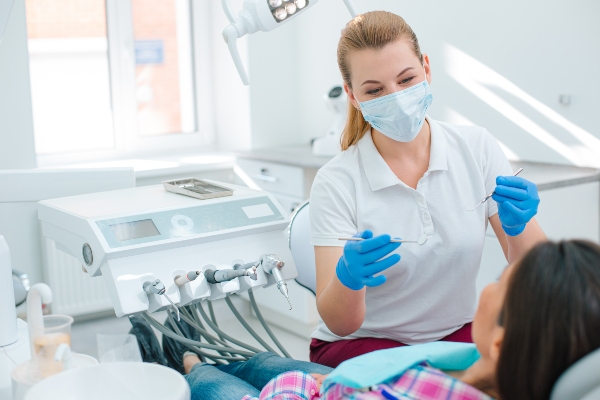How to Care for Your Teeth With Invisalign®

Taking care of your teeth while using Invisalign® clear aligners is important in order to make sure the treatment goes as planned. The plan itself is just one factor in ensuring that your Invisalign® treatment is a success; learning how to properly maintain and care for your teeth and aligners can make or break treatment time and effectiveness.
One of the major benefits of Invisalign® is that the clear aligners are removable. However, this also means that patients must be careful about how they treat their aligners, both in and out of the mouth. Invisalign® provides a convenient system of straightening teeth, but with it comes certain responsibilities.
Why choose Invisalign®?
Invisalign® has a great number of benefits. Busy adults who do not wish to interrupt their lifestyle tend to choose this system, as it interferes little with everyday life, while braces can throw a wrench into daily routines. With Invisalign®, patients can remove the device throughout the day at their will, taking the trays out to brush their teeth like normal, drink and eat.
With braces, patients have to adapt to a new system of cleaning around the device, not to mention also limiting their diet to softer foods and avoiding chewy foods and popcorn. Invisalign® allows patients to eat virtually whatever they want, as long as they remove the aligners beforehand.
Caring for your teeth with Invisalign®
Taking care of teeth and taking care of the clear aligners may seem like two different things, but they are deeply connected and can affect the length and effectiveness of treatment time drastically.
What to do
First, make sure to remove the tray before eating, and rinse the trays before returning them to the mouth once finished eating. This will make sure the teeth stay free of cavities and the tray stays free of bacteria and residue. Eating with Invisalign® can cause irreparable damage to the trays that can delay treatment. In fact, rinsing the trays each time they are removed from the mouth is a good rule of thumb. Invisalign® also provides a cleaning solution that patients should use to soak their trays regularly. This keeps the aligners moist and prevents breakages.
Brush teeth frequently, at least twice each day. Floss once daily. This not only helps remove food debris and bacteria from the mouth but will also help keep Invisalign® trays looking and feeling fresh for longer. Keeping the teeth clean also prevents the buildup of bacteria underneath the aligners. Brushing the aligners is a great idea, but do not use toothpaste. Toothpaste is a bit too abrasive for the clear plastic and can leave marks.
What not to do
Do not eat or drink while wearing Invisalign® (with the exception of water), as this can damage the aligner or stain it. This is especially true for dark-colored food and drink, like fruit, sodas, tea, chocolate, juice and coffee. Crunchy foods can cause breaks to occur in the aligner, so always remember to remove aligners prior to eating. Hot drinks like tea and coffee may seem harmless, but the extreme temperature can warp the tray while it is in the mouth and cause the fit to be off.
Ready for Invisalign®?
Invisalign® can help straighten your teeth while keeping them healthy and happy. For those who want a brilliant, straightened smile with little hassle, Invisalign® is the right choice. Call our office today to schedule an appointment with one of our friendly dentists to get you on the road to the smile of your dreams.
Request an appointment here: https://gkdentaloffice.com or call GK Dental PC at (617) 826-6075 for an appointment in our Everett office.
Check out what others are saying about our services on Yelp: Read our Yelp reviews.
Recent Posts
An emergency dentist provides urgent care for individuals experiencing sudden dental issues that require immediate attention. Understanding what qualifies as a dental emergency can help patients determine when to seek professional help. While some dental problems may seem urgent, others can be addressed with routine care. Whether due to a sudden injury, severe pain, or…
If you have severe dental pain, an infection, or an injury, seeing an emergency dentist can give you immediate relief. However, following the recommended care instructions after professional treatment is important to ensure proper healing and avoid potential complications. Following these post-treatment guidelines can lead to a smoother recovery and better overall oral health.Following a…
Choosing a family dentist as your next dental provider is one of the best decisions you can make for every family member. However, there are multiple factors to take into account when asking questions. Here are a few potential questions to consider when searching for a family dentist.Most feel comfortable starting with questions about their…
Teeth whitening treatments are an effective way to improve the color of your teeth significantly. These treatments consist of using chemicals with bleaching properties like hydrogen carbamide or hydrogen peroxide to remove stains from the inner and outer layers of teeth.The types of stains teeth whitening treatments are effective on include the yellow stains teeth…


